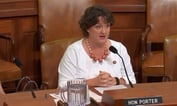The Internal Revenue Service this week announced that it had “acquiesced” in a year-old decision by the U.S. Court of Appeals for the 9th Circuit that allowed two unmarried domestic partners each to claim a home mortgage interest deduction on a residence they owned together.
The decision could have far-reaching implications for many single taxpayers who co-own qualifying residences.
Under § 163(h)(3) of the Internal Revenue Code, a taxpayer may deduct interest paid on a mortgage — limited to $1 million of mortgage debt — or a home equity line of credit — limited to $100,000 — for a principal residence and a second home.
The debt limit is $550,000 for a married taxpayer filing a separate return. For home indebtedness of more than $1.1 million, the taxpayer may deduct only the ratio of the statutory debt limit divided by the total actual debt.
In the case before the 9th Circuit, Bruce Voss and Charles Sophy, California-registered domestic partners who owned homes in Rancho Mirage and Beverly Hills, argued that each was entitled to his own limitation on the jointly owned property. The IRS disagreed, and the Tax Court ruled that they had to share the limitation.
The Ninth Circuit, in Voss vs. Commissioner, decided in the petitioners’ favor in a 2-1 opinion handed down on Aug. 7, 2015: “Although the statute is silent as to unmarried co-owners, we infer from the statute’s treatment of married individuals filing separate returns that § 163(h)(3)’s debt limits apply to unmarried co-owners on a per-taxpayer basis.”








 August 05, 2016 at 09:41 AM
August 05, 2016 at 09:41 AM










